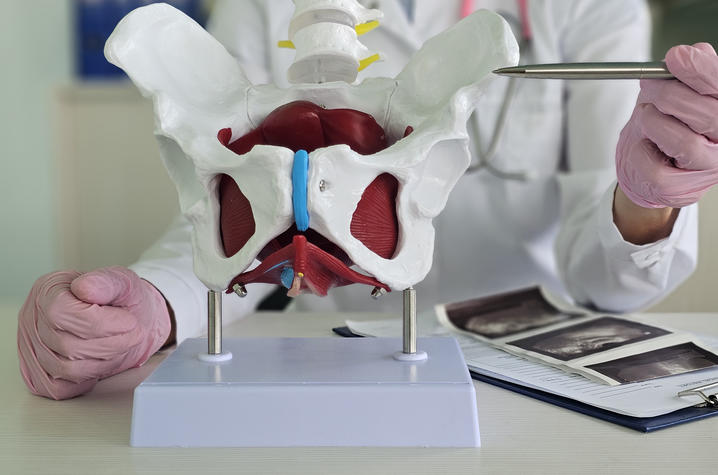Bladder leaks aren’t normal — Here’s how to fix them

The University of Kentucky Public Relations and Strategic Communications Office provides a weekly health column available for use and reprint by news media. This week’s column is by Johnnie Wright Jr., M.D., division director of Female Pelvic Medicine and Reconstructive Surgery at UK HealthCare.
Lexington, Ky. (Sept. 2, 2025) – Think bladder leaks are just part of aging? Laughing, sneezing, or lifting shouldn’t come with a leak. Although it’s easy to dismiss the occasional leak as a byproduct of pregnancy, childbirth or just something that comes with age, urine leaks are not normal and can be a sign of pelvic floor dysfunction. The good news is that urinary incontinence is common and treatable, and solutions are closer than you think.
Stress Urinary Incontinence (SUI) is the involuntary leakage of urine while coughing, sneezing, lifting, laughing or exercising. At least 10-20% of women are affected and find that their social and personal relationships and level of physical activity are impacted by incontinence. Depression and anxiety are linked to urinary dysfunction; someone who feels they no longer can control their bladder may withdraw and become more socially isolated.
Pregnancy and vaginal birth, and other factors including obesity, chronic cough, chronic heavy lifting and constipation can cause an increase in abdominal pressure and aggravate stress incontinence. Weakness in the pelvic floor muscles that support the bladder and urethra can also lead to leakage.
A urogynecologist can perform some simple, minimally invasive tests to diagnose SUI and offer treatment options to help strengthen the pelvic floor. Physical therapy, light-intensity exercises such as walking and yoga can strengthen the pelvic floor muscles, and there are several free apps with exercises for maintaining continence. In some cases, surgery may be required to correct the weakened pelvic muscles that support the bladder.
If you are experiencing leakage, or other issues such as pelvic pain or discomfort, talk to your primary care provider about a referral to a urogynecologist to discuss treatment options.
UK HealthCare is the hospitals and clinics of the University of Kentucky. But it is so much more. It is more than 10,000 dedicated health care professionals committed to providing advanced subspecialty care for the most critically injured and ill patients from the Commonwealth and beyond. It also is the home of the state’s only National Cancer Institute (NCI)-designated Comprehensive Cancer Center, a Level IV Neonatal Intensive Care Unit that cares for the tiniest and sickest newborns and the region’s only Level 1 trauma center.
As an academic research institution, we are continuously pursuing the next generation of cures, treatments, protocols and policies. Our discoveries have the potential to change what’s medically possible within our lifetimes. Our educators and thought leaders are transforming the health care landscape as our six health professions colleges teach the next generation of doctors, nurses, pharmacists and other health care professionals, spreading the highest standards of care. UK HealthCare is the power of advanced medicine committed to creating a healthier Kentucky, now and for generations to come.




